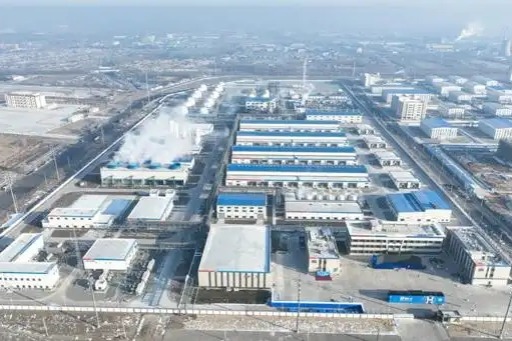Criticism of checkpoint plan is scaremongering

Raymond Li, with reference to the Basic Law, says opposition arguments against the co-location plan are not only very wrong but also irresponsible
It is never surprising when the opposition camp opposes government proposals despite the legality and economic benefits they offer Hong Kong. The government's plan to establish a joint customs and immigration checkpoint, allowing mainland officers to discharge customs and clearing duties in a quarter of the West Kowloon express rail terminus leased to the mainland is another example of this.
In light of the High Court's decision dismissing the leave application of judicial reviews lodged by "pan-democrat" supporters on Wednesday, the court considered such a legal challenge to be "premature". This was mainly on grounds that the government's co-location proposal was only an "intermediate" decision. It did not amount to a "substantive" or "decisive" decision which would carry significant legal consequences affecting the applicants' rights or interests. In short, the challenge did not provide the necessary legal arguments and facts the court required. The court's decision was a slap in the face for the "pan-democrats" - who resort to such court proceedings constantly. But such futile, premature court battles via the legal-aid system means a colossal waste of taxpayers' money, a massive portion of which has probably ended up lining the opposition counsels' pockets.
The "pan-democrats"' opposition to the co-location proposal and moves to delay and oppose the HK$88.4 billion Express Rail Link have little real legal substance. They argue that the proposed joint checkpoint contravenes the constitutional requirements of the Basic Law that no national laws shall be applied in the Hong Kong SAR except those listed in Annex III. But this argument overlooks other major Basic Law provisions. These provide a clear constitutional basis for the proposed co-location arrangement.
For example, Article 7 of the Basic Law clearly states that all land within Hong Kong shall be State property. It also stipulates that the SAR government shall be responsible for the management, use and development of this land and for leasing the land or granting it to individuals and organizations for use or development. Therefore, the co-location proposal has considerable constitutional validity. The SAR government may be challenged for not having the power to lease land to allow the mainland to exercise control. But Article 20 can help to fill in this "constitutional vacuum" because the powers of the HKSAR are granted by the National People's Congress, the Standing Committee of the NPC or the Central People's Government.
By reading these two provisions together, the proposed co-location arrangement is justified legally. The constitutional challenge of Article 18(2) therefore has no validity at all. Under the co-location proposal, the full jurisdiction enjoyed by the mainland authorities is qualified by the confines of the designated checkpoint area. This means that law enforcement officers are only discharging customs clearing and border control duties. Such a co-location arrangement is in fact not unprecedented; similar arrangements have long been implemented in the Shenzhen Bay Control Point since 2007. If the "pan-democrats" are so concerned with the co-location proposal, why were they tight-lipped when the arrangement was implemented on the mainland a decade ago?
The accusation that the application of Article 20 reduces Hong Kong's autonomy in regard to the leased area designated for the joint checkpoint is also wrong. Albert Chen Hung-yee, a Basic Law Committee member, argued that the provision clearly gives the HKSAR the authority to enact a new law to facilitate operations at the joint-checkpoint. Moreover,the HKSAR still has the freedom to decide whether or not it will use the powers given to it by the NPCSC. Those people discrediting Article 20 by suggesting it allows Beijing to interfere in Hong Kong's autonomy are wrong. Such arguments are typically used by the "pan-democrats" when they are opposing the government.
Veteran legal practitioners in the opposition camp, such as Martin Lee Chu-ming and Margaret Ng Ngoi-yee, instead of basing their arguments on laws and facts, have been engaging in scaremongering. They argue that the co-location proposal is "opening a door for Beijing to quash protests in Hong Kong", "the disappearance of Basic Law" and "a smokescreen to allow mainland security agents to operate in Hong Kong". But such arguments lack any solid evidence. These are emotional not rational arguments. Indeed, they are nothing more than irresponsible political shenanigans by the opposition to exploit public fears.
As Hong Kong is a "super-connector" between the Chinese mainland and the rest of the world, the construction of express rail with a joint-checkpoint arrangement should be recognized as strategically important infrastructure. It allows Hong Kong to maximize the mainland's economic development plans. It means Hong Kong can tap into the growth opportunities arising from the Belt and Road Initiative and the Guangdong-Hong Kong-Macao Greater Bay Area. To ensure Hong Kong never becomes economically marginalized we have to stop opponents of the co-location arrangement. We must also reject their scare tactics in the interests of Hong Kong's future.
Bertrand Russell, the British philosopher, once said: "Fear is the main source of superstition, and one of the main sources of cruelty. To conquer fear is the beginning of wisdom."
It is time for each of us to use wisdom to learn the truth and dispel "fears" projected by the opposition camp.
The author is a current affairs commentator.
(HK Edition 09/29/2017 page11)
Today's Top News
- US plan for arms sales to Taiwan condemned
- China creates 12.1m new urban jobs
- Dialogue constructive way to rebalance trade
- AI needs to be governed wisely to ensure that it is beneficial for future of humanity: China Daily editorial
- China warns about Japan's intended military buildup
- China urges EU to halt anti-subsidy probes






























